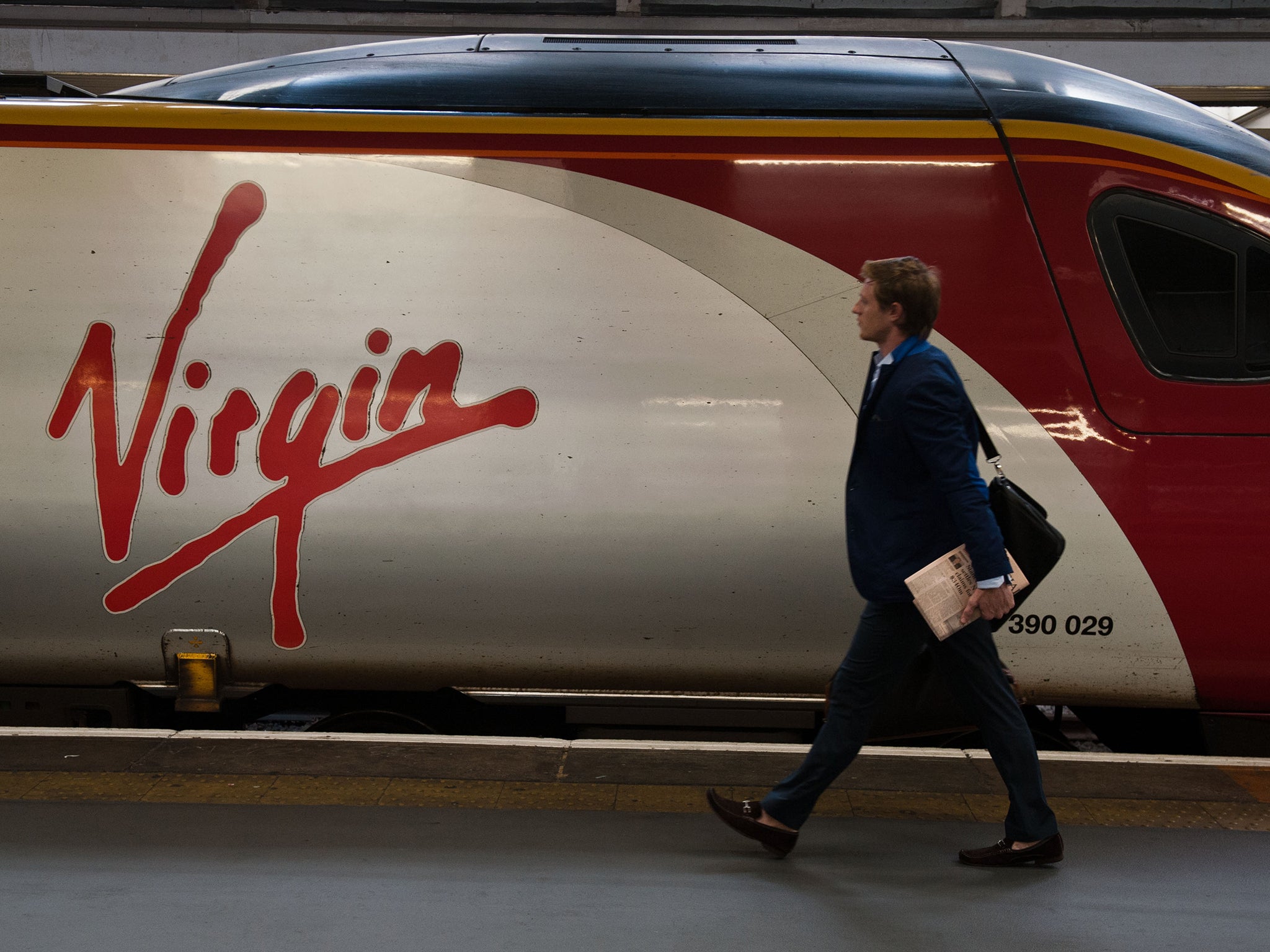Virgin East Coast users would scoff at Jeremy Corbyn’s claims of overcrowding
Yes, there are serious problems with overcrowding on commuter trains, but the 11am from London King’s Cross to Newcastle customarily carries a grand total of zero commuters

Your support helps us to tell the story
From reproductive rights to climate change to Big Tech, The Independent is on the ground when the story is developing. Whether it's investigating the financials of Elon Musk's pro-Trump PAC or producing our latest documentary, 'The A Word', which shines a light on the American women fighting for reproductive rights, we know how important it is to parse out the facts from the messaging.
At such a critical moment in US history, we need reporters on the ground. Your donation allows us to keep sending journalists to speak to both sides of the story.
The Independent is trusted by Americans across the entire political spectrum. And unlike many other quality news outlets, we choose not to lock Americans out of our reporting and analysis with paywalls. We believe quality journalism should be available to everyone, paid for by those who can afford it.
Your support makes all the difference.Cultural historians may pay tribute to Jeremy Corbyn and his advisers for reviving a great British cinematic tradition. Carry On Up The East Coast provides some welcome comedic relief, presumably scripted by the team behind The Thick of It, as the Labour Party tears itself apart.
This shabby episode to portray a Virgin Train as grossly overcrowded will be scoffed at by those who actually use the railway. Yes, there are serious problems with overcrowding on commuter trains. But the 11am from London King’s Cross to Newcastle customarily carries a grand total of zero commuters.
To conflate the intense pressure on suburban and middle-distance trains around London, Manchester and other cities with the very different issues affecting long-distance inter-city services shows that, 21 years after privatisation began, politicians still don’t understand the railway.
Real commuter services – such as those from Beckenham, Brighton, Bracknell and Biggleswade – fulfil an important social need. They allow workers to find affordable housing and agreeable lifestyles yet still reach their desks – or hospital wards, or classrooms – in the capital. They are heavily subsidised. Yet they manage simultaneously to be annoyingly expensive (to the season-ticket holding passengers) and rather too cheap – as witnessed by the overcrowding on many lines at peak times.
Often when commuters are “vox-popped”, they complain in a single breath about the high fares and the inability to find a seat. If the fares were priced according to what the market would bear, the train operators would earn more money and everyone would get a seat. But many people would be priced off the trains and onto our inadequate road network.
Of course there are some stations at which inter-city and commuter services converge: the key examples are Reading, Milton Keynes and Peterborough, through which Jeremy Corbyn and his team whizzed at 100mph-plus. But most of the time commuters and long-distance passengers do not mix.
Indeed, it is difficult to think of a less appropriate departure on which to pull a stunt like “Floorgate” than the 11am from King’s Cross - or the Hogwash Express, I shall call it.
The main problem facing the Stagecoach/Virgin Group franchises on the East and West Coast Main Lines is that there are rather too many empty seats, especially on mid-morning departures to York, Darlington and Newcastle, and other off-peak trains.
Successive governments have never managed to define the role of inter-city trains. Simply put, the railway should bind Britain together - for the benefit of business travellers, students returning home with their abundant bags of laundry, pensioners visiting friends and family, and overseas tourists.
As French, German and Italian visitors who have gone to the trouble of mastering our strangely fragmented rail system will testify, our much-maligned long-distance trains offer excellent value to anyone (such as the Labour leader) who is able to travel off peak and plan ahead.
At the same time there is a long-established and much-valued guarantee that, even if 500 Labour advisers were to climb aboard the 11am in a bid to demonstrate genuine crowding, other passengers will be able to travel – though it may mean standing. That doesn’t happen in France, where often ticket offices will just put up the shutters, with notices translating as “no more seats to Paris today”.
If Mr Corbyn really wants to sort out the railways, then he must confront the reality that other senior politicians have consistently shied away from: saying that some fares need to rise to manage demand; that antiquated working practices must be modernised to cut costs and reduce the subsidy paid by many millions of taxpayers who never go near a train; and that the ludicrous “cliff edge” fare changes at the start and end of the evening rush hour need to be eliminated, to stop the scandalous waste of resources that sees even peak-time trains leaving with plenty of empty seats.
But given the electoral sensitivity of the railway, I fear the politicians’ favourite train, the Hogwash Express, will steam on for many years.
Join our commenting forum
Join thought-provoking conversations, follow other Independent readers and see their replies
Comments